
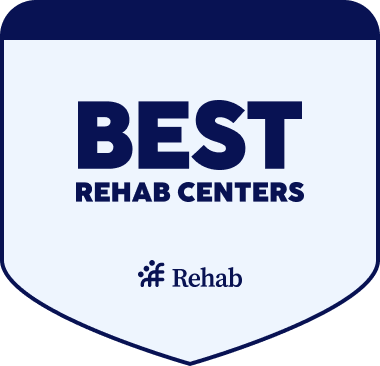
Intensive Outpatient Programs (IOP) for Addiction Treatment
Intensive outpatient programs (IOPs) provide flexible, structured addiction treatment that lets you live at home while attending several days of therapy and support each week. Discover how top-rated intensive outpatient programs for addiction work, who they’re best for, what they cost, and how to find an IOP near you that fits your life.
Best Intensive Outpatient Drug Rehabs
| Name / Address / Rating | Description | Treatments / Payments / Programs | Review / Contact | Images |
|---|---|---|---|---|
Cave Creek, AZ 1
Top 10 in Intensive Outpatient
Rehab Score
Our Rehab Score is designed to make it easier for you to find the best treatment centers. We combine overall ratings with recent feedback to create a score that reflects a center’s quality right now.
8.90 / 10 | Soberman’s Estate, located in Cave Creek, Arizona, is an alcohol and drug rehab center that provides addiction treatment services to adult men, professionals, and public figures. They are a discrete, luxury rehab for individuals aged 30 to 80 years old. This location caps their treatment center at ten men at a time. Soberman’s Estate focuses on | Treatments Programs Payment Options | Soberman’s Estate was everything I needed for my recovery. The staff, the program, physical activity and culinary experience were top notch and essential. The program is well designed and worked better than I expected. The staff is remarkable – professional, considerate and genuinely caring. My time there and being removed from alcohol for five weeks was everything I needed to remove my craving for alcohol. Soberman has changed my life in ways I never could have imagined. I feel confident, secure and grateful for my new life. I have reconnected with my family and friends. Thank you Soberman.
George B.
3 months ago
Yes, very professional staff, treatment, therapist, chefs were good! even the home cook did the best she could, and loved the horses of Course! Saturday morning hiking was fun to explore the trails of the nearby mountain area!
John E Williams
3 months ago
I had a great experience overall and would recommend it to anyone wanted to jump start their sobriety!!
Kevin Crawford
3 months ago
| 
5 5 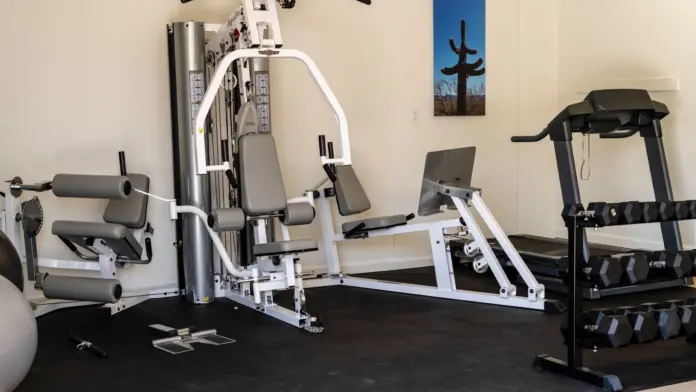
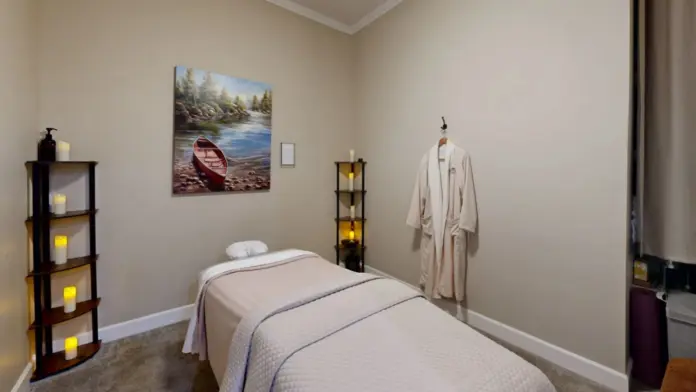


|
Clarksville, IN | Avenues Recovery Center in Clarksville, Indiana, is an inpatient drug and alcohol detox and rehab center. They strive to provide individuals receiving treatment with a loving environment and attentive medical care. You’ll be away from toxic environments and triggers and have the opportunity to focus on developing life skills that will support you | Treatments Programs Payment Options | Avenues is truly amazing. I couldn’t ask for better people to help me start my journey. I’m so grateful for all of you!
Tarrah
1 week ago
Katina is the most thoughtfulness and know and woman everI I love her so much
Shelley McBride
1 week ago
This place although only 30 days has changed my life. The staff is the most understanding group of people I’ve experienced in recovery. If you need and want help I suggest you go to Avenues.
Teresa Lee
1 week ago
| 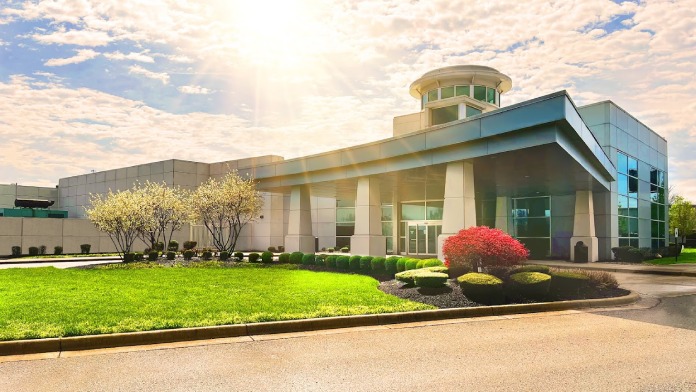
4 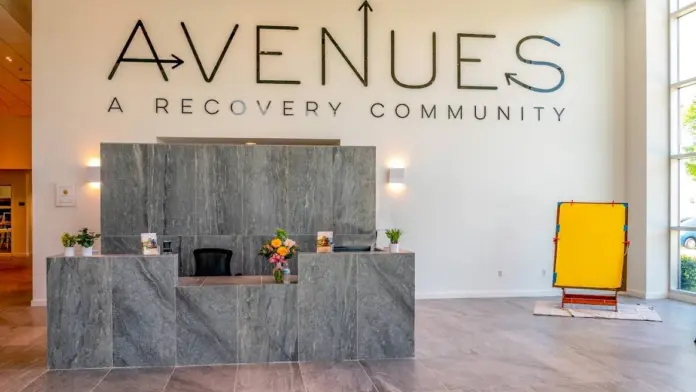
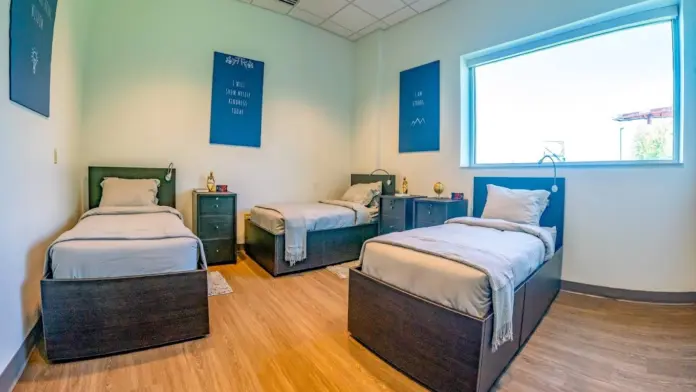
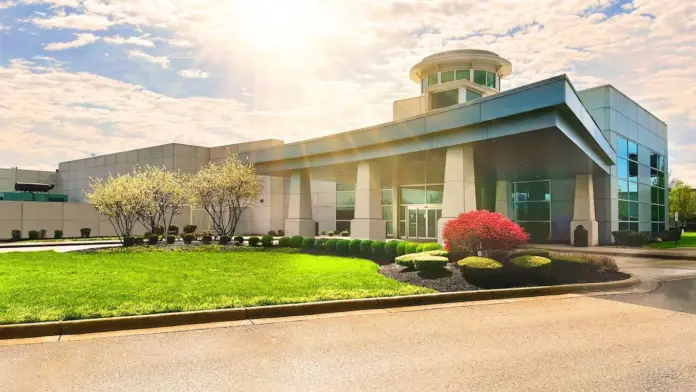
|
Simi Valley, CA 2
Top 10 in Intensive Outpatient
Rehab Score
Our Rehab Score is designed to make it easier for you to find the best treatment centers. We combine overall ratings with recent feedback to create a score that reflects a center’s quality right now.
8.80 / 10 | All In Solutions Detox in Simi Valley is one of the best ranked inpatient detox facilities in California providing safe, medically supervised care for individuals beginning their recovery from drug or alcohol addiction. As part of the All In Solutions Behavioral Health network, this facility serves as the first step in a full continuum of care. Cli | Treatments Programs Payment Options | This place saved my life. Great facility and staff. I was very nervous/scared to come here but the staff were very friendly and helpful. If you are thinking about treatment I highly recommend this place.
xCochise
2 weeks ago
This program dramatically help me get back on track in my recovery and was very well staffed and organized was an amazing experience.
Jacob Berghaus
3 weeks ago
I recommend calling the facility to confirm what the sales team tells you is true. The staff facility and people are great.
Amanda Cortes
4 weeks ago
| 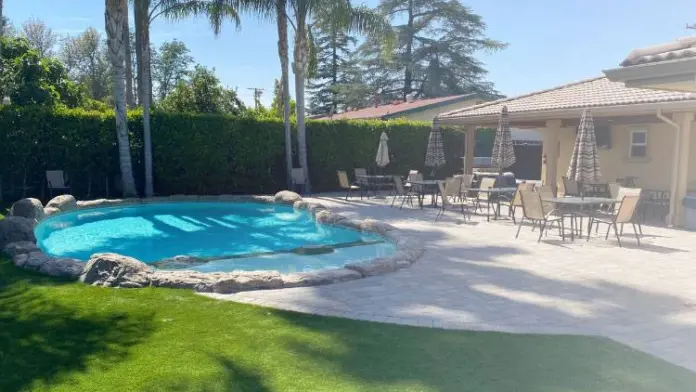
5 5 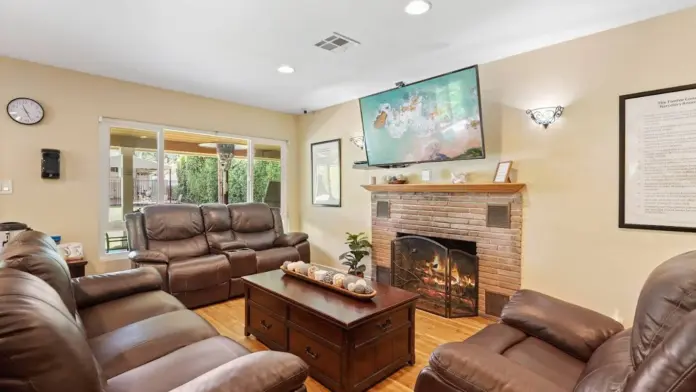

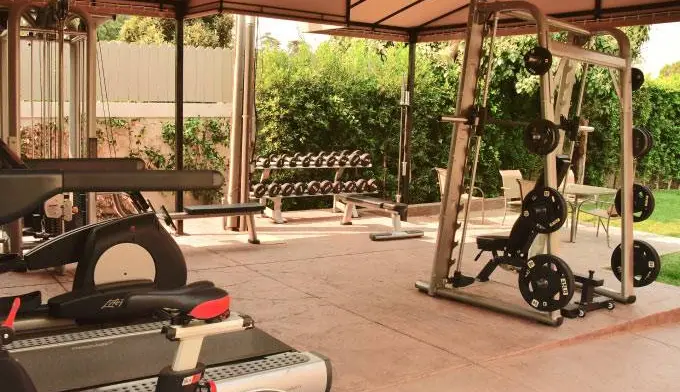
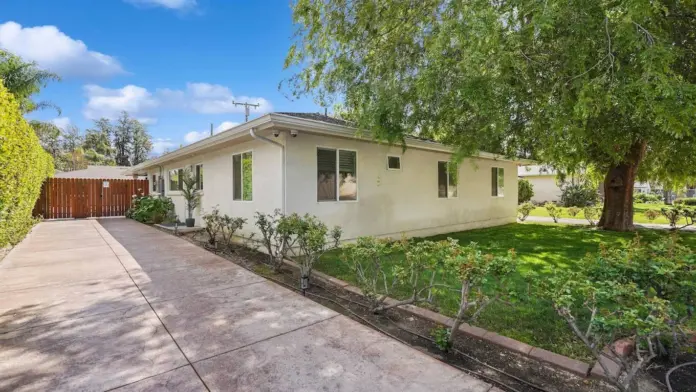
|
Hurst, TX 3
Top 10 in Intensive Outpatient
Rehab Score
Our Rehab Score is designed to make it easier for you to find the best treatment centers. We combine overall ratings with recent feedback to create a score that reflects a center’s quality right now.
8.80 / 10 | Symetria – Hurst Outpatient Rehab and Suboxone Clinic in Hurst, Texas, is a private drug rehabilitation clinic for adults. One of the best outpatient rehab centers in Texas, Symetria offers various withdrawal medications to help clients get started with their recovery journey. You’ll also have access to treatments such as the intensive outp | Treatments Programs Payment Options | Symetria is unbelievably amazing!!! The Hurst staff is phenomenal!!! I can’t imagine that another location has a better staff. A special shout out to Deborah, Benjamin, and Samantha of course. You all are doing amazing, amazing, selfless work. You all are very special to so many!!!
Vernon Godsey III
3 months ago
Huge shout out to the team at symetria who make me feel like family I appreciate everything they do and huge shout out to Osagie for helping me! He is AWESOME!!! I love you symetria❤️❤️❤️
Chloe Roseman
3 months ago
BEST PLACE EVER. I have tried various other doctors/clinics and none of them even begin to compare to this one. The staff here is absolutely amazing. I can’t even make a single complaint. Dr Son is the best as well. He explains everything and you truly feel like he understands you. I can proudly say this, this place saved my life. If you or someone you know needs help getting off opiates do it right the first time and come here. You won’t be disappointed. If you are specifically struggling with fentanyl please don’t waste your time with other ways. I have tried 6 other methods from lazer therapy to having the earpiece to suboxone. Methadone is the key to our current fentanyl crisis. This clinic makes recovery possible again!
Mason
4 months ago
| 
5 5 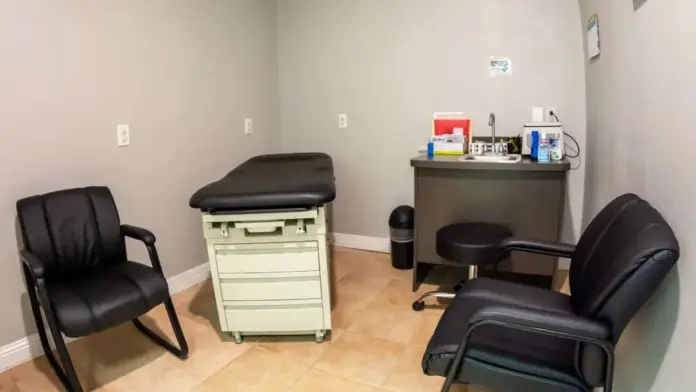
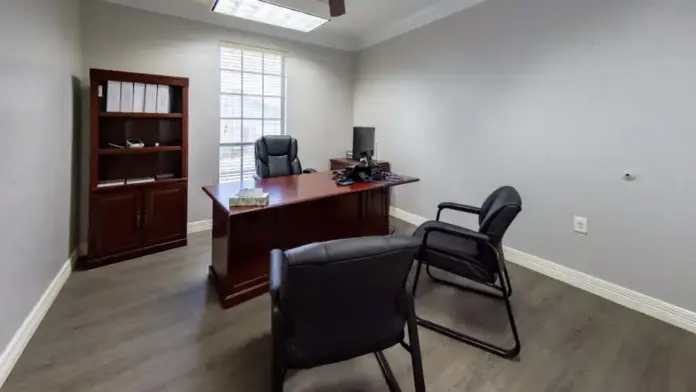
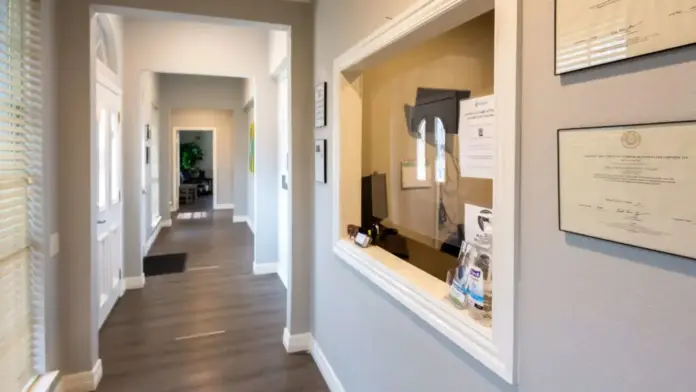
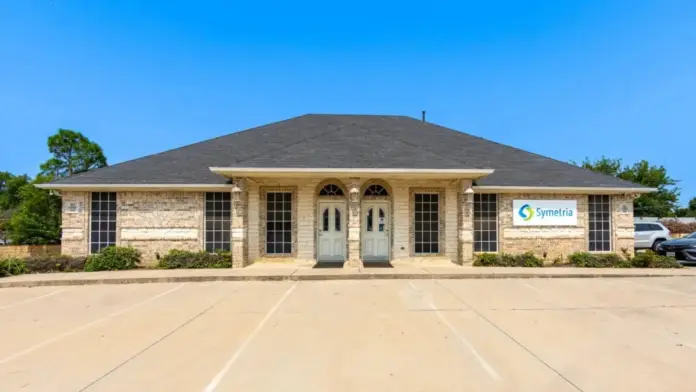
|
Boynton Beach, FL 4
Top 10 in Intensive Outpatient
Rehab Score
Our Rehab Score is designed to make it easier for you to find the best treatment centers. We combine overall ratings with recent feedback to create a score that reflects a center’s quality right now.
8.80 / 10 | All In Solutions Counseling Center is a mental health center and addiction treatment program in Boynton Beach, Florida. They provide a partial hospitalization program, an intensive outpatient program (IOP), an outpatient program, medication-assisted treatment, and mental health care for adults with substance use disorder. All In Solutions Counseli | Treatments Programs Payment Options | All In Solutions received me with open arms for the second time. The staff make sure you receive a high quality care treatment. I’m grateful for the love and care . God continue to bless everyone.Thank you for you do .
Jianil Richiez
4 days ago
This place changed my life. My therapist was great and all the staff was great.
Ash Leigh
1 week ago
My time at All in Solutions has been the most valuable important decision I’ve ever made. I have nothing but love and respect and gratitude to all the staff who helped guide me to a freedom I thought I could never have!!! I love you guys from the depths of my soul!!! Thank you Thank you Thank you!!!!
Ben Rhea
2 weeks ago
| 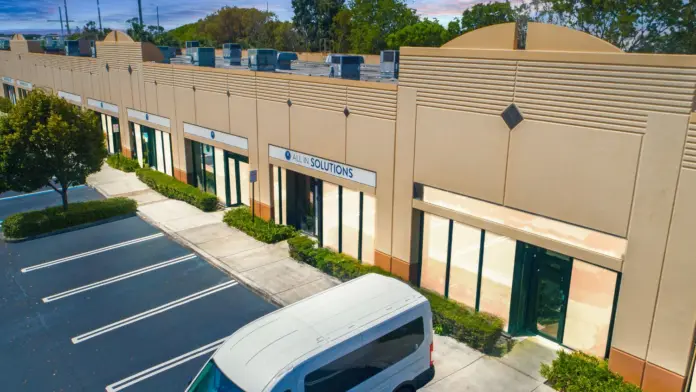
4 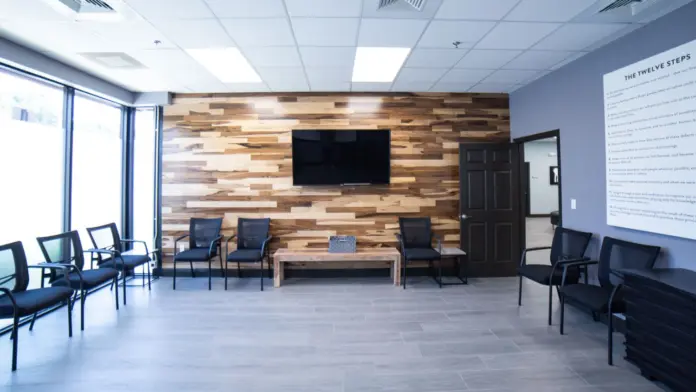
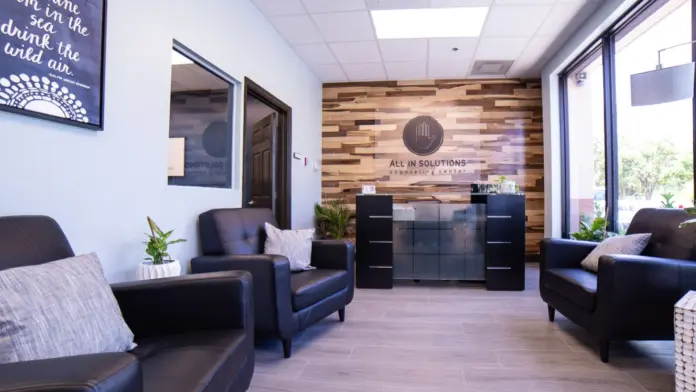
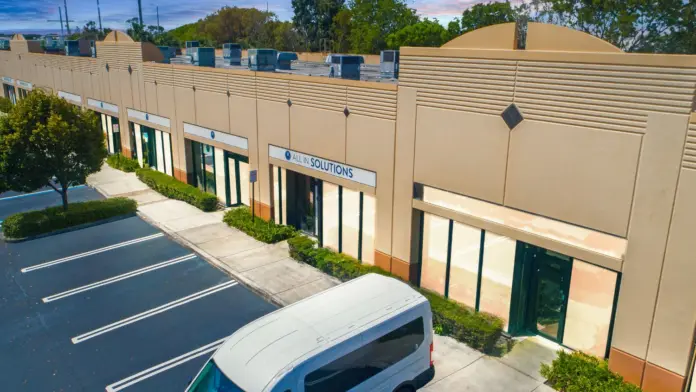
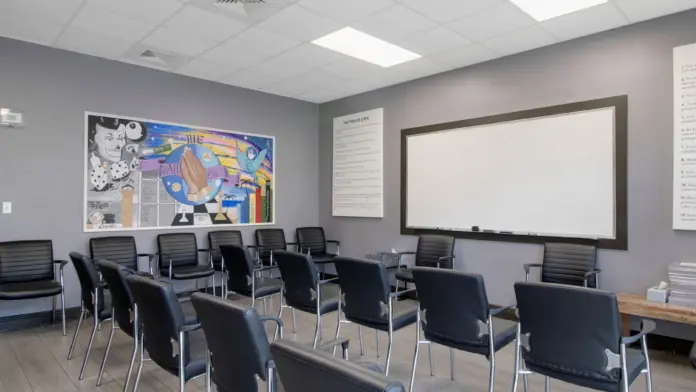
|
Galloway, NJ 5
Top 10 in Intensive Outpatient
Rehab Score
Our Rehab Score is designed to make it easier for you to find the best treatment centers. We combine overall ratings with recent feedback to create a score that reflects a center’s quality right now.
8.80 / 10 | Boca Recovery Center – Galloway is a drug and alcohol rehab in Galloway, NJ. They provide inpatient addiction treatment and medical detox. Boca Recovery’s New Jersey Drug & Alcohol Rehab, located in Galloway, New Jersey offers residential addiction treatment, medical detox, and medication-assisted treatment in an immersive treatment s | Treatments Programs Payment Options | My sobriety journey started at Boca. The staff members including Miss Tracey, Hannah and Kevin their alumni coordinator have completely flipped the trajectory of my life. I was immediately taken in with open caring arms and they made my detox process as comfortable as possible. During my stay, Joe was extremely helpful in helping me slowly gain my appetite back and start to feel stronger and was so attentive to my nutritional health. Nurse Patrick was so kind to me during my intake and Kevin still reaches out to me very often to check in and is so helpful in my recovery process. I owe gaining my life, my strength and my family back to Boca and I am eternally grateful❤️
Rianna Dean
2 weeks ago
Great facility with even greater staff. One of the best rehab/detox in South, NJ.
Donna Kratzer
3 weeks ago
Very comfortable stay
Will
4 weeks ago
| 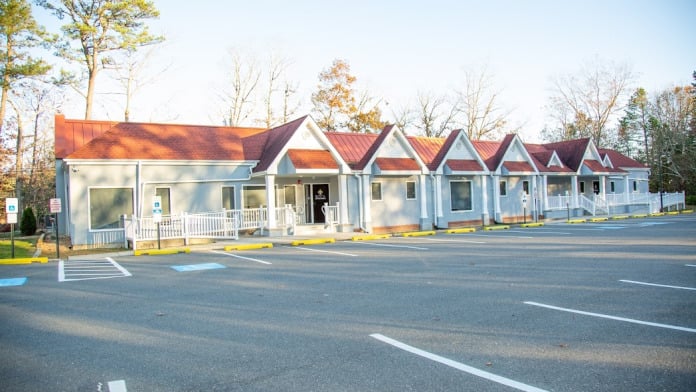
7 7 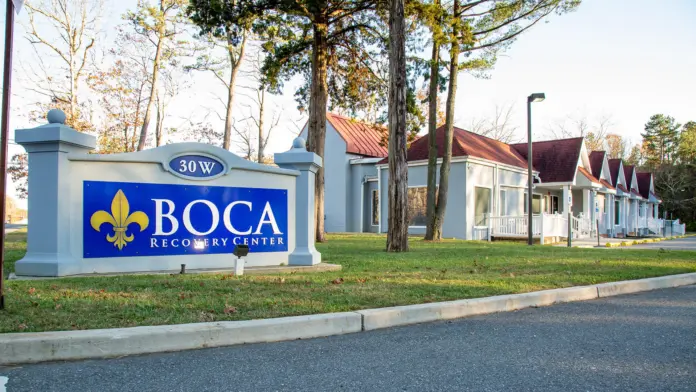
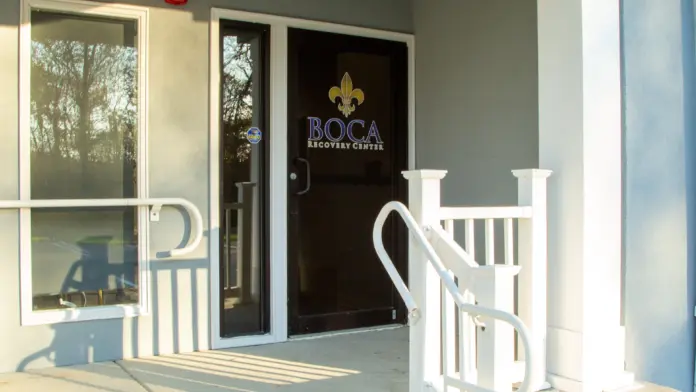
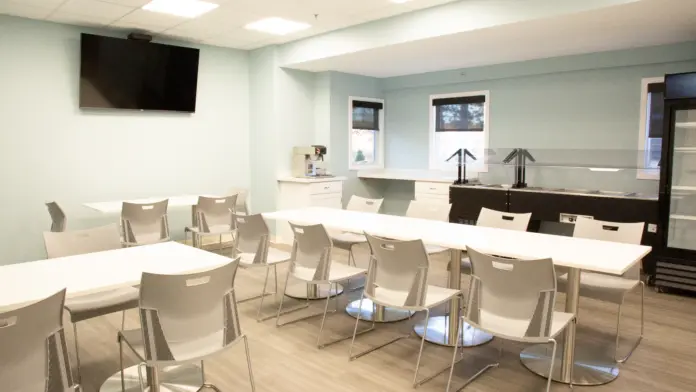
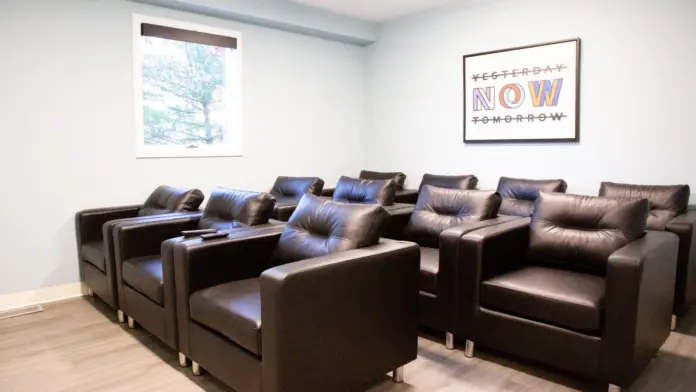
|
Bloomington, IN | The Boca Recovery Center is a luxury alcohol and drug rehab center for adults in Bloomington, Indiana. They specialize in cutting edge addiction treatment provided in a residential setting. One unique part of this alcohol and drug rehab in Indiana is the peaceful, secluded setting. If recovering in a clinical hospital setting doesn’t sound very a | Treatments Programs Payment Options | This place damn near saved my life. Staff is amazing and care almost on a personal level. Nurses are knowledgeable and groups are interactive informative and inclusive
V Montez
5 days ago
Boca recovery was a magical experience during a very difficult time that will always hold a special place in my heart. From top to bottom, the support of staff is second to none.
Tyler and Carrie, Carter, Alexx, Ashley, Brooke, Michelle, Meagan, and the rest of the techs are phenomenal. My therapist January opened my eyes to perspectives I had been missing my entire life and Justin the case manager worked tirelessly from the start all the way until his wife gave birth on my last day to make sure I was set up for success.
The nurses are amazing and the medical attention someone needs during this portion of their recovery is 110% offered around the clock.
The place has everything you need from a gym to recreational activities, spacious beds with luxury amenities. And one cannot go without mentioning the chef, Tim. You won’t find better “rehab food” and conversation.
I owe a thank you to the director John for his efforts to get me into a great program after my stay was over.
To anyone struggling with with mental health and/or addiction, I cannot shout praises loud enough for what this program has to offer each and every client that walks through those doors.
If you want a way out, there’s no better place to check in.
Alex K
3 weeks ago
My name is Derick Caldwell and I had a good time there I learned a lot there the staff was amazing especially the techs and the clients they help me get through my depression and sadness just wanted to say Thanks…I forgot the food was right on time also 😁
James Sander
3 weeks ago
| 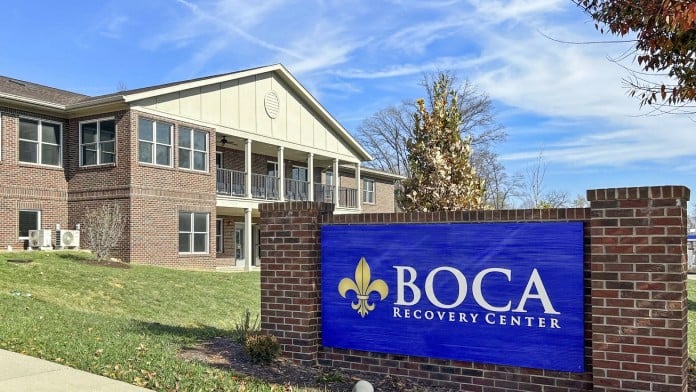
6 6 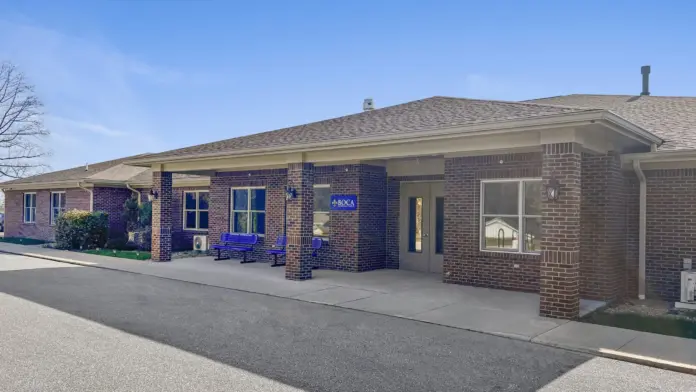
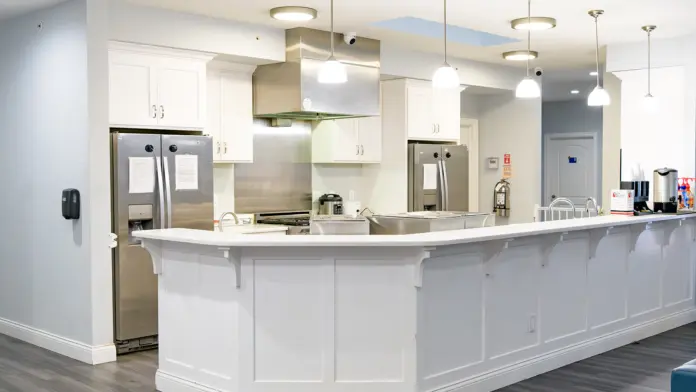
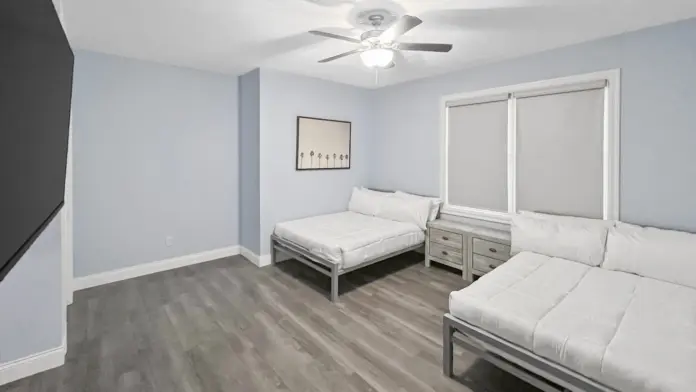
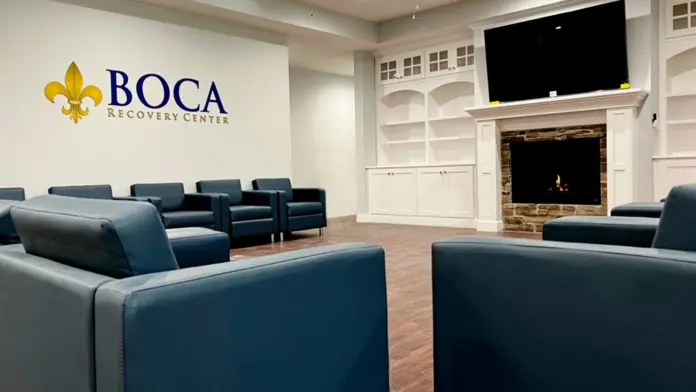
|
Woodbury, TN 6
Top 10 in Intensive Outpatient
Rehab Score
Our Rehab Score is designed to make it easier for you to find the best treatment centers. We combine overall ratings with recent feedback to create a score that reflects a center’s quality right now.
8.77 / 10 | If you’re looking for a Christian-based men’s drug rehab center, S2L Recovery in Woodbury, Tennessee, might be the place for you or your loved one. Located at the top of Short Mountain, and overlooking the green hills of Middle Tennessee, this residential and detox clinic boasts a one-to-one staff/patient ratio so there’ll always be someone t | Treatments Programs Payment Options | Coming from Canada, I was hesitant. But God knew that S2L was exactly where I needed to be. At 64 years of age, I was able to discover my true identity, purpose, and mission in Christ. They help you in trying to get clean and sober for sure. But what S2L and the staff are all about is the Gospel of Jesus Christ. That’s why it is so successful.
TIM TANNER
3 months ago
I’ve had the privilege of seeing the life-changing impact this ministry has on countless men & I can’t recommend it highly enough! God has His Hand on this ministry & I’m honored to see the Lord work in these men!
Hunter Stanfield
3 months ago
Come here with a open mind and heart. It can and WILL change your life in all ways. Trust the process and trust God! Could go on and on about how amazing this place, I’ll forever be grateful!
Trevor Woodard
3 months ago
| 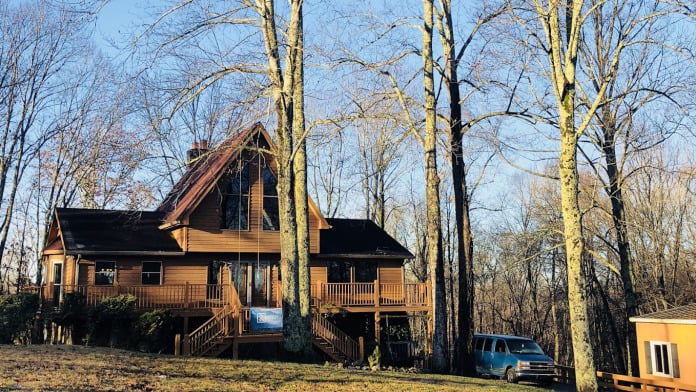
6 6 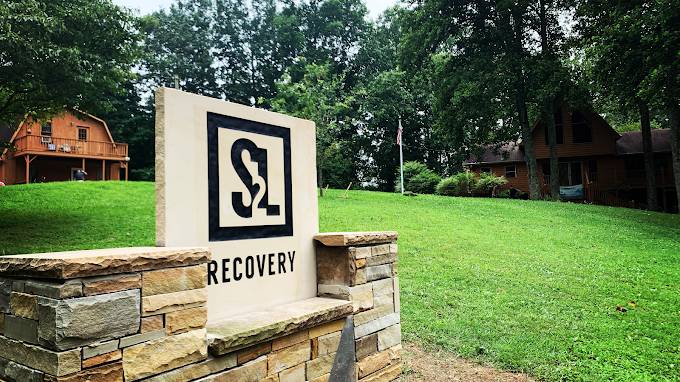

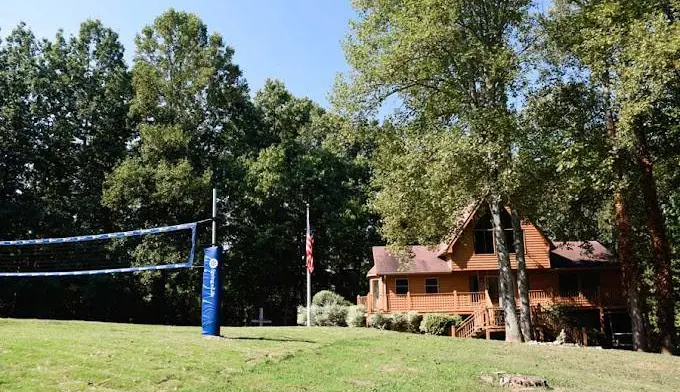

|
Levittown, PA 7
Top 10 in Intensive Outpatient
Rehab Score
Our Rehab Score is designed to make it easier for you to find the best treatment centers. We combine overall ratings with recent feedback to create a score that reflects a center’s quality right now.
8.76 / 10 | The Steps To Recovery addiction treatment center is situated in Levittown, Pennsylvania. At this drug rehab center, patients can expect to engage in a unique treatment approach that focuses on helping individuals recover through authenticity, intimacy, community connection, and transparency. Steps to Recovery offers a serene and private environ | Treatments Programs Payment Options | Good place, great housing
Nicole Rivera
2 months ago
Amazing support network and great staff lovely time with my stay at STR buck
William Perry
2 months ago
My experience at Steps to Recovery has been great for the most part, the people and the environment are very welcoming and comforting. I have had some issues that have come up, but they usually get resolved. My only main gripe is with some of the other clients at the community living house fail to clean up after themselves, and some do not know self control. But, the staff here is very professional and easy to talk to. I find that the opportunities here for my recovery journey are pretty good, although I’d like access to more holistic therapy resources. I’ve actually personally facilitated a Dharma meeting and will facilitate more in the future. I appreciate my time here at STR and am excited for the future with them.
Jerry Davis
3 months ago
| 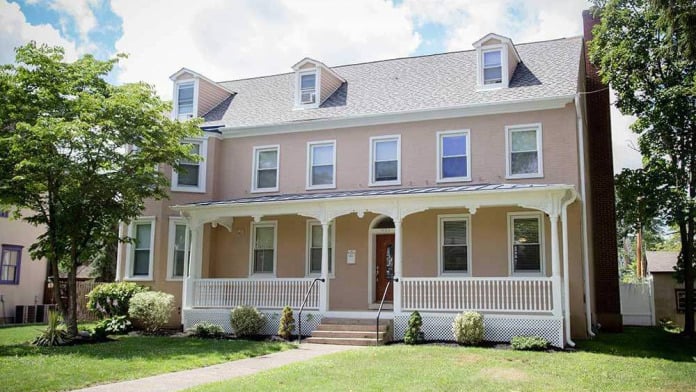
6 6 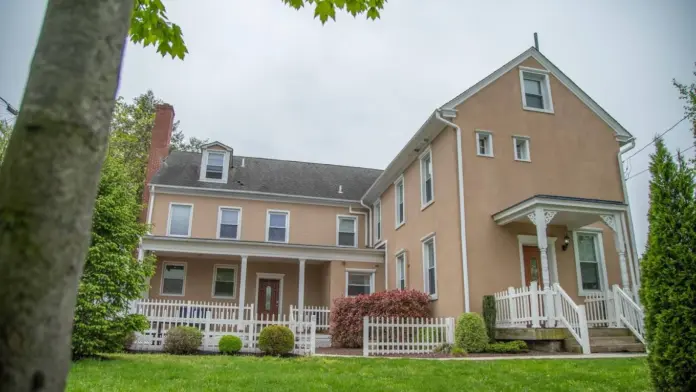
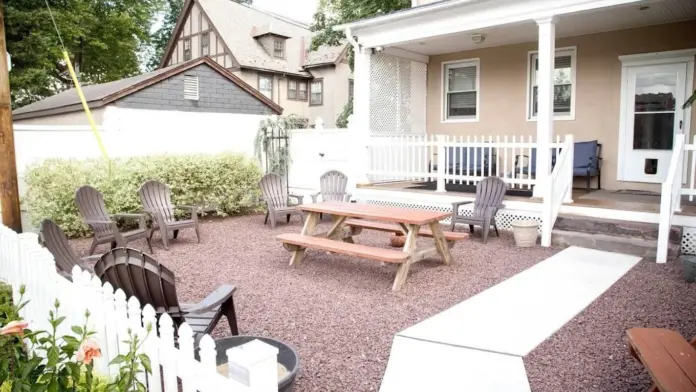
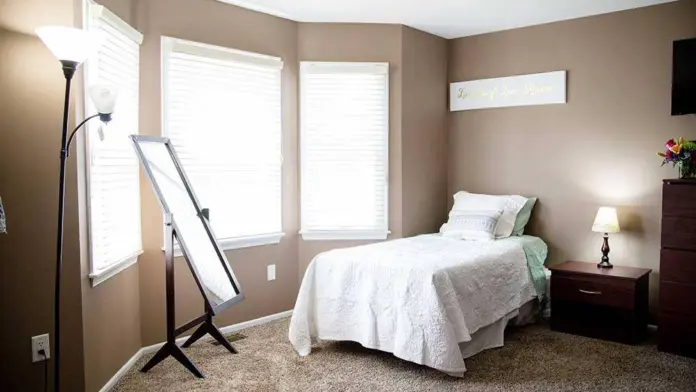
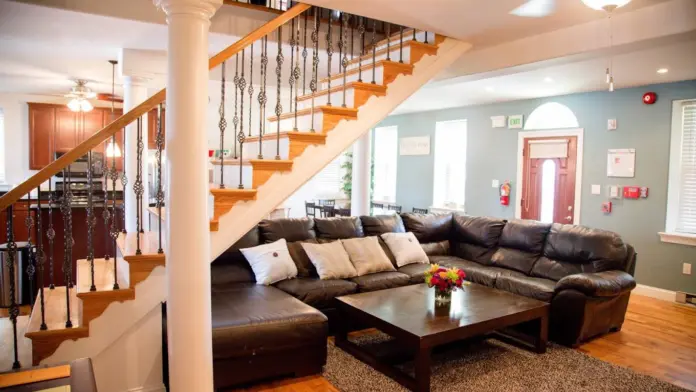
|
Watsonville, CA 8
Top 10 in Intensive Outpatient
Rehab Score
Our Rehab Score is designed to make it easier for you to find the best treatment centers. We combine overall ratings with recent feedback to create a score that reflects a center’s quality right now.
8.76 / 10 | Located in Watsonville, California, Elevate Addiction Services provides alcohol and drug rehab services to men and women suffering from addiction. Their levels of care include detox, inpatient treatment, and outpatient treatment. One of the best ranked Outpatient treatment centers in California, Elevate Addiction Services provides a wide continuum | Treatments Programs Payment Options | I have been through other treatment facilities in the past; but Elevate has by far been the best experience I could’ve hoped for. Recovery isn’t just the ability to abstain from substances, but the capability of transforming from within. Not only has Elevate help me appreciate the things within me but everything around me as well. Thank you, Elevate for changing the trajectory of my life and my marriage!!
Michael Amodeo
4 weeks ago
Great place. The staff super nice amd very knowedgable about addictions. Its a very special place. Better than all others ive gone to. Definate thumbs up
Tyler Kerney
1 month ago
Our experience with Elevate Addiction Services has been truly life-changing. From the very beginning, the director, family liaisons, counselors, therapists, continuing care coordinators, house dad’s – we felt genuine compassion and care from everyone we had the pleasure of interacting with. We were kept informed of how our son was doing every step of the way. It never felt like we were alone in this. Everyone at Elevate was fighting for our son right alongside of us.
The love and compassion shown to our son meant everything. Today, he is living clean & sober, feeling confident in the tools and foundation Elevate equipped him with. Elevate welcomed him with open arms. Watching him complete the program and graduate has been one of the proudest moments of our lives.
We are so deeply grateful for Elevate and the loving and compassionate professionals who work there.
Without hesitation, we would highly recommend Elevate Addiction Services to anyone seeking help for themselves or a loved one. They helped our son find his way back.❤️
Kenny & Shelly Wright
1 month ago
| 
5 5 
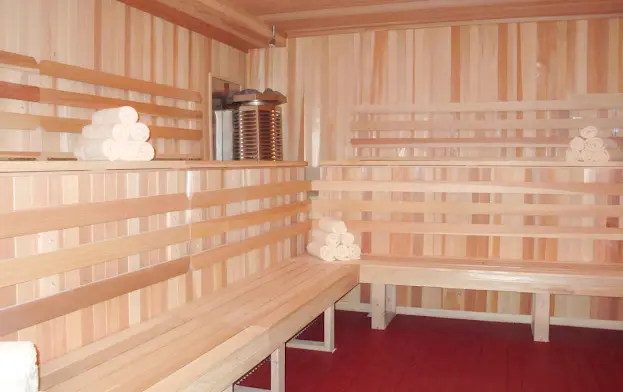
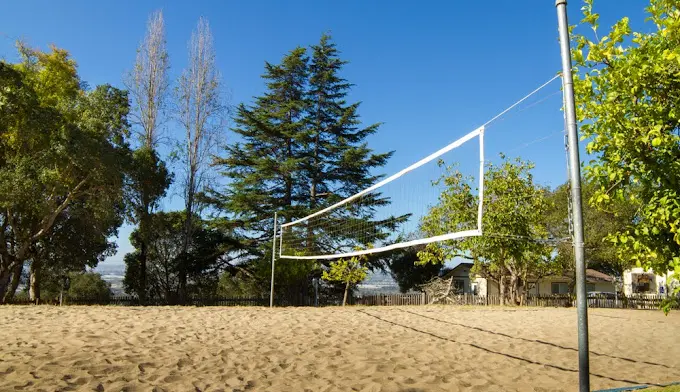
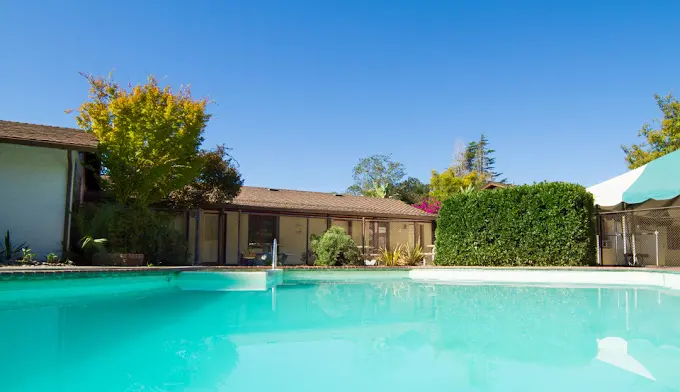
|

Intensive Outpatient Programs for Addiction Treatment
Intensive Outpatient Programs for Addiction Treatment
Intensive outpatient programs (IOPs) are one of the many options available for individuals who are seeking treatment for a substance use disorder. An intensive outpatient program allows participants to live at home and visit a facility several days each week for treatment.
This article will discuss the goals of IOP, the treatment breakdown and benefits from engaging in IOP. You will also learn about the differences between outpatient therapy, inpatient rehab and IOP.
Key Facts:
- The breakdown of IOP and what happens during treatment
- Benefits of IOP
- Higher vs. lower levels of care – Comparing IOP to inpatient rehab treatment
- Finding a group that best fits your need and your background
- Payment options – Insurance coverage and options for those who are under-insured or have no insurance
- How to seek services with links to a directory to find an IOP program near you
What Is Intensive Outpatient Drug Rehab Program?
What Is Intensive Outpatient Drug Rehab Program?
Intensive outpatient programs (IOPs) are one of the many options available for individuals who are seeking treatment for a substance use disorder. An IOP allows participants to live at home and visit a rehab facility several days each week for treatment.
This type of treatment is designed for people who do not need detox or 24/7 supervision. They may be struggling with mild to moderate addiction or are transitioning from a residential treatment program to the next step in recovery.
What Are the Goals of an Intensive Outpatient Program?
IOPs provide support, relapse prevention and coping strategies to help people step back into their lives and families while maintaining healthy sober habits.
Common goals of an intensive outpatient program include:
- Maintaining abstinence
- Learning early-stage relapse management
- Achieving behavioral change
- Developing coping strategies
- Participating in support programs and therapies
- Establishing or re-establishing support systems
- Addressing psychosocial issues such as housing, employment and meeting probation requirements.
- Emphasizes real world skill practice between sessions to speed community reintegration.
Placement on the ASAM Continuum of Care
The ASAM Continuum of Care is the most widely used and comprehensive set of standards for placement, continued service, and transfer of patients with addiction and co-occurring conditions.
There are four levels of care that range from the least intensive/lowest (Level 1), which includes standard outpatient therapy or counseling sessions, to the most intensive/highest (Level 4), which is medically managed inpatient rehab. IOP falls into Level 2 and that means it’s one of the lower levels of care.
What Happens During an Intensive Outpatient Program?
What Happens During an Intensive Outpatient Program?
IOPs involve a variety of addiction treatments and therapies to address the challenges of addiction. Most include group, individual, 12 Step and alternative therapy methods. IOP treatment may also include medication management, vocational training and case management.
Medication Management & MAT Options
As part of an IOP, some programs offer medication assisted treatment (MAT) in addition to therapy. This can be done via telehealth or in person.
MAT uses specialized medications that reduce physical cravings for certain drugs or alcohol, making it easier for you to stay sober as you build the skills for long-term sobriety in therapy. The medications that are often prescribed include buprenorphine, methadone and naltrexone. It is important to note that you will need to do therapy alongside MAT to receive maximum benefits.
Group Therapy
Group therapy (including 12 Step groups) is a central component of most intensive outpatient programs. The goal of these sessions is to provide mutual peer support, teach participants how to socialize without the use of substances, and develop other sober life skills.
The types of groups may include:
Skills Development
Allows participants to practice specific behaviors in a safe setting
Psychoeducational
Teaches participants about addiction and techniques for problem solving
Refusal Training
Provides role-playing for participants to practice how to say no to substances
Relapse Prevention
Helps participants identify triggers and learn how to manage them
Family
Teaches participants about the effects of substance abuse on relationships and how family members can support each other
Individual Therapy
Individual therapy sessions allow participants to dig deeper into the issues covered in group therapy. The most common methods used during individual therapy include cognitive behavioral therapy, dialectical behavioral therapy, motivational interviewing, the Matrix Model and 12 Step facilitation. Individual therapy typically takes place on a weekly basis but it may happen more often during early treatment.
Alternative Therapies
Individual and group therapies involve a lot of verbal communication and interaction. To tap into other healing methods IOPs may offer alternative therapies as well. These treatments may include adventure therapy, art therapy, equine-assisted therapy and music therapy.
Benefits of an Intensive Outpatient Program
Benefits of an Intensive Outpatient Program
There are multiple benefits to an IOP treatment plan, including:
- Affordability: IOPs are more affordable when compared to the price of inpatient treatment. Because participants live at home, treatment costs do not need to cover housing, meals and other amenities.
- Support: IOPs allow you to enjoy constant contact and support from loved ones. In contrast, inpatient programs may require separation from family and friends while you live at the rehab facility.
- Structure: An IOP offers a higher level of structure than traditional outpatient programs. This structure is helpful for developing healthy patterns of living in early recovery.
- Practice: IOPs offer the opportunity to practice recovery skills in real time. Participants can apply strategies in the real world that they are learning in treatment, while still engaging in the IOP.
- Flexibility: With an IOP schedule, you have the flexibility to meet and maintain daily responsibilities.
- Evidence based outcomes: IOPs can have similar benefits to inpatient rehab when it comes to abstinence rates. Although an IOP does not provide 24-hour care, it is still an intensive service that has a multitude of benefits for people dealing with addiction.
- Versatility: With IOPs, there are options to step up or down in treatment based on what’s going on with you in your recovery journey. If you need a higher level of care, you can be referred. Or if you are needing a lower level of care, your clinicians can step you down to outpatient services.
Who Is a Candidate for IOPs?
If you are interested in IOP services you need to understand that there are “ideal candidates” when it comes to who this type of treatment would best benefit. This level of care is ideal for those with a mild to moderate relapse risk and those whose sobriety is manageable without 24-hour medical oversight.
IOPs are also for those who are more independent and are able to follow their individual treatment plans in and out of treatment. If you have safe, substance free housing, reliable transportation and motivation for change you could be a good candidate.
When a Higher or Lower Level of Care May Be Safer
When a Higher or Lower Level of Care May Be Safer
In some cases, someone might need a higher or lower level of care than an IOP.
If you are experiencing serious withdrawal symptoms or mental health issues like suicidality or if your addiction is severe and you aren’t confident you can stay sober without support available around the clock, then you might need to upgrade to inpatient rehab or a partial hospitalization program (PHP).
If your addiction is mild and you don’t need as many hours of treatment as an IOP involves, you may be a good fit for traditional outpatient services. Your treatment team will conduct periodic ASAM assessments to ensure you’re getting treatment at the least restrictive effective level.
Comparing Inpatient Rehab and IOPs
Inpatient treatment requires participants to live on-site. The facility provides 24/7 care while you are in treatment. Services include meals, medical care, housing, and recreation.
An intensive outpatient program allows you to live at home while you are receiving treatment. You go to the facility only during treatment times, then return home. Rather than 24/7 care, IOPs usually offer between 9 and 20 hours of treatment per week.
Comparing Outpatient Rehab and IOP
Both IOPs and outpatient care provide treatment at a facility while you live at home. However, intensive outpatient programs involve more hours of treatment each week than standard outpatient treatment.
The higher level of care from an IOP is often necessary for people with more severe substance use disorders or little support at home. Outpatient treatment, on the other hand, is appropriate for individuals with few mental health issues, a solid support system and less severe addiction.
Specialized Tracks & Populations
Specialized Tracks & Populations
Dual Diagnosis (Mental Health + SUD)
If you are experiencing mental health issues in addition to a substance use disorder, you could benefit from integrated treatment for both. This typically includes methods such as cognitive behavioral therapy, dialectical behavior therapy or trauma focused therapies.
This therapy addresses mood disorders, relapse concerns and other mental health issues like anxiety and depression. In some cases, people develop a substance use disorder due to self medicating their mental health symptoms. If that’s you, consider finding a dual diagnosis program that addresses both.
Gender-Specific & LGBTQ+ Affirming Programs
These specific programs offer a safe space to process gender based stigma and discrimination, and they give you the safety and familiarity of being around people of the same gender or sexual orientation.
These programs can also provide education and discussion opportunities on topics such as reproductive health, hormones, or minority stress. These types of groups can also point you in the direction of other affirming programs with this specific population to help you feel more connected.
Teens, Young Adults & Collegiate Tracks
Teen, young adult and college programs provide a developmentally tailored and age appropriate approach to treatment. They also help address issues associated with these ages like peer pressure and academic stress.
They may emphasize family involvement, and these services can be offered in schools as well to help reach more students. Some of these programs might also give you an opportunity to give back to the community and engage in peer support for others in your age group who are dealing with similar issues.
Professionals, Veterans & First Responders
These programs are designed for those seeking treatment due to their jobs or the need to protect their professional licensure or security clearance. It also creates a confidential space to share related issues such as burnout, moral injury, PTSD and vicarious trauma with others who understand.
Some professional programs offer treatment options with others in the same field as you so you have a sense of commonality and can relate to one another.
Costs, Insurance & Payment Options
Costs, Insurance & Payment Options
One of the most common questions people ask when researching treatment options is “how much does rehab cost?” Here’s what you can expect to pay for an IOP and some options to help cover those costs.
How much does IOP cost?
The typical private pay is around $250 to $600 per week depending on your specific services. If you are receiving treatment at a non-profit or community mental health agency you could qualify for reduced fees or grants to fund treatment.
Without insurance, the out of pocket cost for IOP treatment is between $250 and $600 per week.
Keep in mind that these prices are without health insurance. If you have insurance, the price range is different, and it’s important to speak with your provider to understand the cost that you could pay out of pocket and what insurance will cover.
Coverage Under the Affordable Care Act & Private Insurance
Due to the Affordable Care Act, you could receive treatment at little to no cost. The ACA specifies addiction treatment as an essential health benefit, which means that nearly all insurance plans must offer comparable coverage to medical care. Medicaid expansion plans also typically include IOPs with a minimal copay.
If you have insurance, your provider will collect your policy information, check the deductible and visit limits, and submit the needed clinical notes for approval.
When seeking treatment, you should ask about network status and surprise billing protections so that you know what you can expect to pay. Insurance will also check your progress notes to verify the need for treatment.
Life After IOP
Life After IOP
The recovery journey doesn’t end after you complete an IOP. It’s important to receive ongoing support to help sustain your sobriety. This is available through a variety of programs.
Transition to Standard Outpatient, Sober Living or Aftercare
Once you complete IOP treatment you’ll step down to other services. Those can include individual therapy or connection to NA/AA and SMART Recovery meetings. Therapy sessions are often conducted on a weekly basis.
In some cases individual therapy will be monthly depending on your specific need and provider availability. You could also be connected to a sober living home that offers a substance-free living space that helps maintain accountability.
By engaging in these various aftercare services you can safely transition from treatment to daily life, without having to navigate everything on your own.
Alumni Programs & Peer Support Networks
Some programs offer alumni groups and other events to stay connected to others in recovery. These groups typically meet monthly and have socials or gatherings to celebrate your progress and your recovery in a positive way.
They also offer service opportunities in the community to build recovery skills. You could have the chance to become a peer mentor to guide others in your shoes that need a positive person in their corner.
Relapse Prevention Planning & Ongoing Monitoring
IOP programs teach you ways to prevent relapse and maintain sobriety. Some of those techniques can include craving journaling, coping skills awareness and urge surfing exercises.
They will also teach you different techniques such as HALT trigger awareness which helps teach you how to identify triggers and work through them to create a positive outcome. They’ll also teach you how to identify triggers and work through them.
Some IOPs will also offer check-ins at 30, 60 and 90 days post discharge.
Frequently Asked Questions About Intensive Outpatient Drug Rehab
Frequently Asked Questions About Intensive Outpatient Drug Rehab
An IOP typically lasts 90 days. However this timeframe could be longer, depending on each person’s unique situation. Participants usually visit the rehab facility three or four times each week. Each visit typically lasts three hours for a total of 9 to12 hours of treatment per week. Some programs require up to 20 hours of participation per week.
Most IOP treatment occurs during weekdays. Many IOPs offer day and evening programs to provide greater flexibility for participants to meet job and family responsibilities.
Yes you can attend work or school during treatment. IOP offers flexible treatment options to best fit your specific needs and schedule. Your FMLA protections with your job supports attendance. Many IOPs offer evening and weekend sessions to allow you to attend school or work while in treatment.
Most insurance will cover an IOP when it is medically necessary. It is important to check on your copay and deductible amounts so you know how much you’ll be paying out of pocket. Some insurance will put a cap on the number of visits you are allowed.
Relapses can occur during treatment and your clinician may increase your session frequency or refer you to a higher level of care such as inpatient rehab if you are at risk or have relapsed. Most clinicians understand the recovery is not linear and will try to work with you based on what is best for you.
Some locations offer virtual options for IOPs, and they can be as successful as in-person care. It is best if you have privacy and a good internet connection so there are no interruptions. Care providers in IOP also understand that attending virtually might be the only option for someone to receive treatment.
Find Treatment Near You
Use the Rehab.com directory to find local treatment centers. You can see top ranked centers by city and state.
If you have questions or are unsure where to start, call the number below to speak with someone today. You can learn about your many treatment options and see if your insurance will cover rehab.
Call A Treatment Provider
For a conversation about what treatment options are available to you.
Make a Call
Addiction Centers Nearby with IOP Drug Rehabs
Finding facilities near you…

